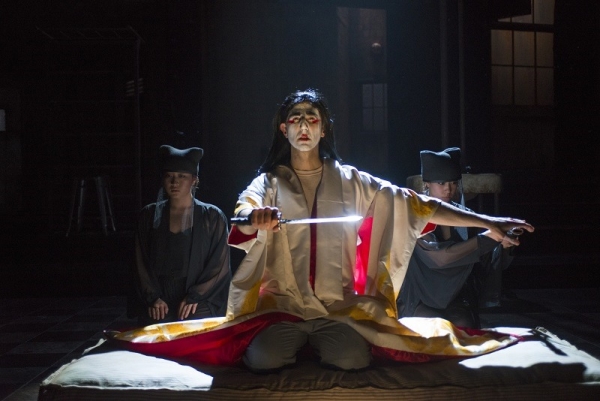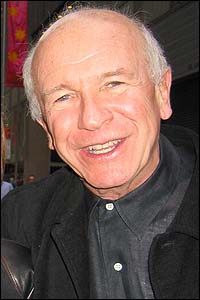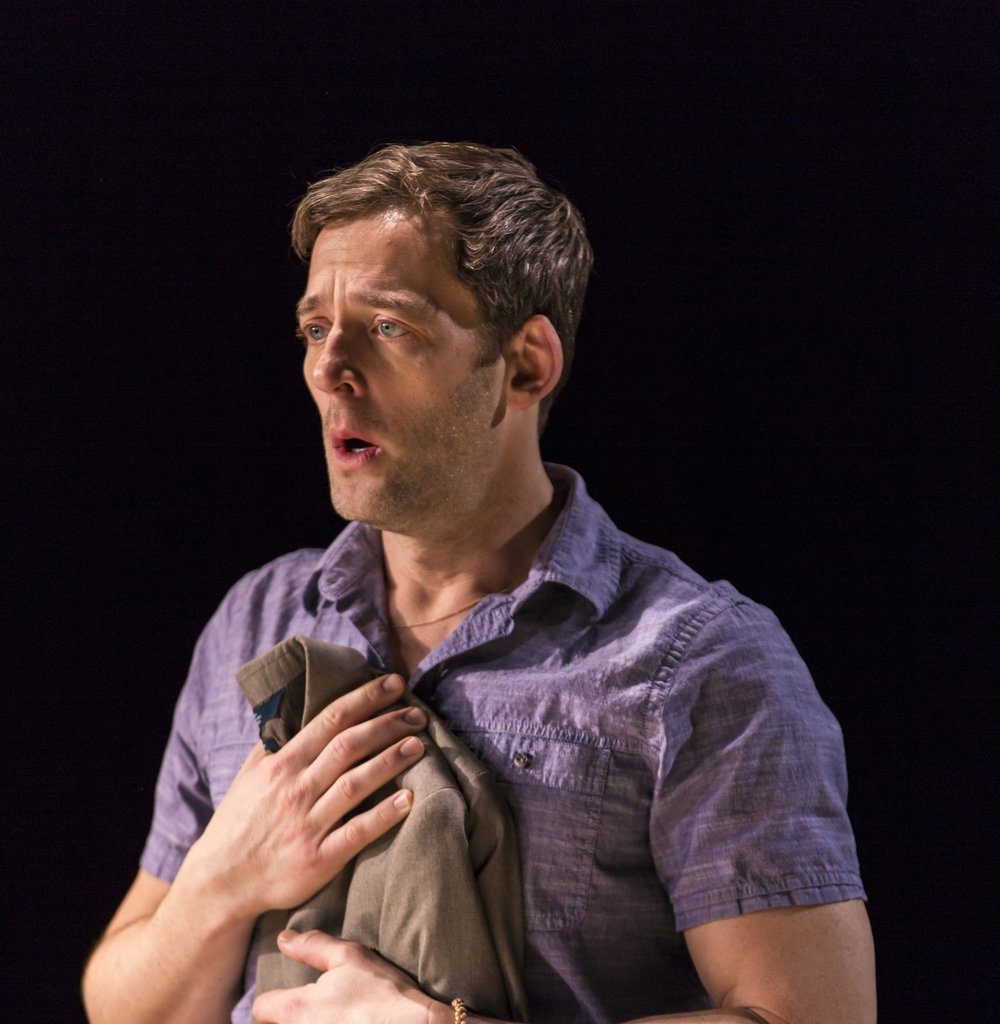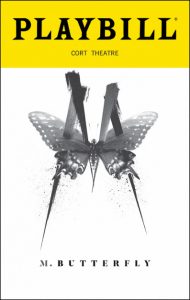 Butterfly
Butterfly
by David Henry Hwang
At the Cort Theatre, New York City
THE BROADWAY revival of David Henry Hwang’s M. Butterfly comes at a propitious moment: the Imperialist American project is once again ripe for re-examination. Issues of gender and assumed male sexual privilege are headline news, and misapprehensions about race shake the body politic. All this while the feckless White House resident hasn’t the wit or empathy to speak in language that might bridge diverse communities. His default manner is a bellicose masculinity, the very kind that playwright Hwang critiques, both directly and indirectly, in his Tony Award-winning play, which first opened on Broadway in 1988. At the time, the Vietnam War still shadowed our foreign policy toward Asia, and sexual minorities were still struggling to be portrayed sympathetically on stage and screen.
In the intervening years, Hwang has learned more of the details of the intriguing story of a French diplomat jailed for passing secrets to a Chinese opera performer, a woman who had been his mistress for two decades but was also acting as an agent of Mao’s Communist regime. Knowing the bare bones of the real Frenchman’s fall from grace, Hwang fashioned his main character, one René Gallimard, as a man who has lived a spotless life of marital fidelity only to be caught in a web of cultural misunderstandings and erotic mythologies. Song Liling, Gallimard’s beautiful paramour, becomes for him his “Perfect Woman,” the reincarnation of the self-sacrificing Cio-Cio-San of Puccini’s Madama Butterfly, an innocent who gives her love to the American naval office Pinkerton. That officer’s ardor proved fleeting, leaving her with a child as she devotedly awaited his return from the United States. In Hwang’s story, Song Liling must “invent” a child well into her affair with Gallimard, playing upon the Frenchman’s desire for a male heir (his own wife, Agnes, and he have been unsuccessful trying to conceive) and perhaps securing her own transfer to Paris where, answering to her Communist minders back in Beijing, she will be closer to the centers of French power and their secrets.
The story is told as flashback in a series of staccato scenes that are like the fever dream of the imprisoned Gallimard, jailed for espionage on behalf of Mao’s China. He sees his bizarre downfall as a perverse distinction, aware that he has become a celebrity, if also a cocktail party joke among Paris mondaines and his colleagues in the diplomatic corps. At his initial posting in China, he had eventually earned a grudging respect for bedding one of the locals, a woman of modest stature with the Chinese Opera. An old school chum of his, Marc, a ne’er-do-well Lothario, sees this as a feather in Gallimard’s cap. Suddenly, Gallimard appears poised for advancement within the foreign service. Indeed, he is promoted to Vice-Consul. But his analysis of the American situation in Vietnam is based on misconceptions about the “Oriental” turn of mind and a misreading of the strategic tea leaves. Gallimard’s prognostication of quick success for the Americans is ultimately seen as laughable and deluded.
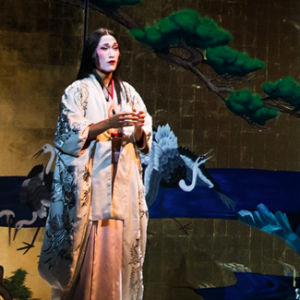
In its initial presentation, much was made of the press avoiding too close an inquiry into the gender of Song Liling, lest one of the play’s surprises be spoiled. Hwang has since deepened the conundrum, presenting an even deeper layer of gender “performances” than previously ascribed to Song Liling. This tends to shift the balance of power from Gallimard, here played with alternating guileless wonderment and cynical charm by Clive Owen (the thinking man or woman’s British sex symbol), to Jin Ha, a suitably androgynous ingénue making a Broadway debut. It is through their seesaw dialogue that Hwang is at both his most didactic and most witty, playing off Western imperialist naïveté against the ancient, sometimes mocking wisdom of the East. Gallimard and Song’s repartee also offers, through Song’s world-weary gaze, the brutal reality of sexual colonialism which has been the template of the West’s Asian intrusions, both military and cultural. In the role, Jin Ha’s performance is a star turn of the first order, the more revelatory for coming from someone with a still modest professional resume—like B. D. Wong who, in the initial production, was awarded a Tony.
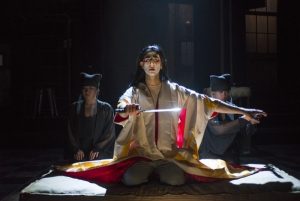
Clive Owen’s Gallimard holds its own in a performance that must play directly to the audience. As the imprisoned Gallimard, he takes us into his confidence in registers that alternate between the embittered and the bitterly amused. In scenes from his diplomatic and home life, Owen plays the adoring, even abject lover, the somewhat puffed-up but ultimately deluded tactician, and the boy scout husband on his first fling. Julie Taymor directs a strong ensemble, but I do not think the staging and décor will linger in memory as did Eiko Ishioka’s designs in the original play. And I feel quite sure that Gallimard’s final revelatory gender inversion has either been softened or truncated. John Lithgow, the original Gallimard, had a silent, stunning moment of applying theatrical geisha “Butterfly” make-up that left the audience breathless. Here, Clive Owen only barely applies a thick layer of white base before delivering his final soliloquy; the operatic denouement hasn’t quite the necessary staying power. As I remember, Lithgow went full on with makeup and wig and kimono, delivering a transformation that was at once regal and pathetic. Fortunately, up to that moment in the play, Clive Owen and Jin Ha have delivered a finely calibrated duel of mutual deceptions, and Hwang’s acidly witty lines and satirical quips still force us to face our own Western delusions about the perfumed Orient.
Allen Ellenzweig is writing a biography of celebrity portrait and male nude photographer George Platt Lynes (1907-1955).


